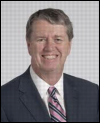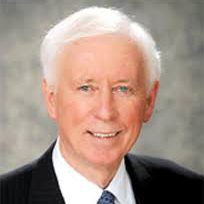Leadership, A Professional Responsibility
As I continue enjoying the heady experience of traveling around the world this year representing the World Medical Association, I am reminded again and again of the responsibility we have as physicians to provide the best care possible to our patients. In addition I believe we have a dual responsibility to provide the leadership to ensure that the environment in which care is given, the structure of the health care system, is one that promotes good quality care.
Physicians have always been about taking care of individual patients. This has been called practicing public health one patient at a time. Taking on an additional role that involves participating in the public arena, providing leadership to influence policy that affects many patients, is relatively new. And physicians, who understandably are very busy taking care of their own patients, do not always feel they have the time to accept this additional responsibility. However, Physicians by virtue of their close involvement with the care of patients have the insights and expertise so critically needed to provide leadership. And in a world of health care that is increasingly complex and increasingly effected by public policy, this is an essential role that we as a profession avoid at great risk to the profession and the patients for whom we care.

Because of this I am always inspired when I see physicians stepping up to the plate to provide leadership. At the American College of Physicians (ACP) annual meeting in San Francisco last month I heard one such physician, David L. Bronson, MD, MACP. Dr. Bronson is President of the Cleveland Clinic Regional Hospitals and just completed a year serving as President of the ACP, the largest specialty society and second largest medical association in the U.S.
At the ACP convocation, in his presidential address titled “A Time to Lead”, Dr. Bronson talked about the importance of looking at the experience of illness and medical care through patients’ eyes in order to understand how the current health care system fails to serve patients and the country. He spoke to the dual responsibility I described above when he called on the 3000 plus physician leaders in the room to provide leadership, in his words: “beyond your practices and clinical work to help drive the redesign of our health care system in your hospitals, communities and in our country.”
Dr. Bronson went on to describe the qualities of great leaders as having integrity, telling the truth, keeping promises, treating everyone with respect and constantly learning. In the context of physician leaders he offered the following five core principles of great leadership based on his experiences.
- “Believe in a purpose greater than yourself. Pursue a cause worthy of your effort and worthy of our profession. Offering all our patients the best health and health care is indeed a worthy goal.
- Leadership is service, not control. It is responsibility, not authority. Leadership is helping others succeed. Remember, it is amazing what can be accomplished when you don’t care who gets the credit.
- Great leaders are also great listeners. They seek to deeply understand the issues and the perspectives of others. They also listen to their inner voice – those softly spoken messages that touch the heart and soul. Influential Swiss psychiatrist Carl Jung stated it well. “Your vision will become clear only when you look into your heart …Who looks outside, dreams…Who looks inside, awakens.”
- Have the courage to lead yet be humble enough to know you may be wrong or know too little. Be willing to learn, change and try yet again.
- Finally, and most importantly, put our patients first in all you do. Remember that the best interests of our patients are the only interests that really matter.”
Dr. Bronson concluded with the hope that “..patients will see a healthcare system that is just, compassionate and accessible. A system that provides the right care at the right time, safely and at the right cost. A system that achieves the highest quality for all patients.”
Leadership is a professional responsibility and I agree with my friend David Bronson, now is “A Time to Lead”.

